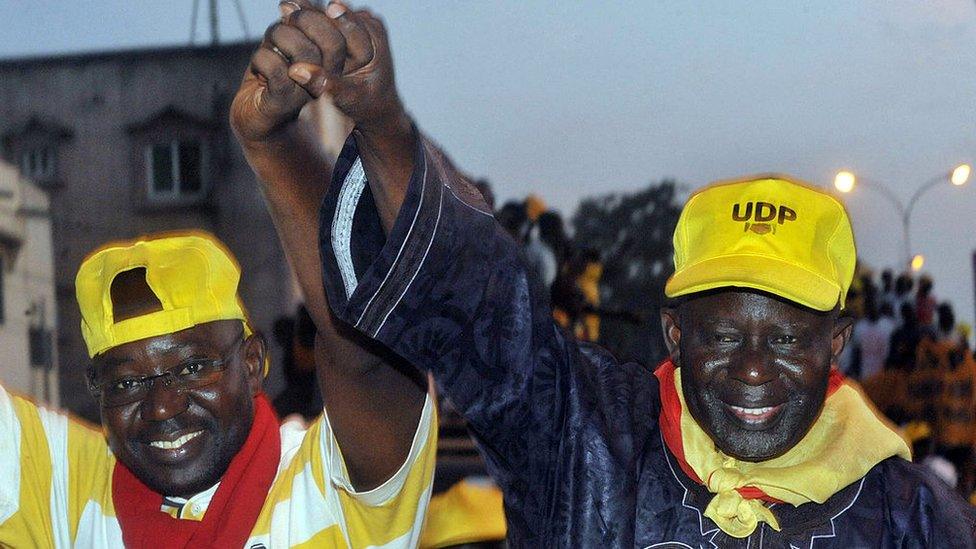
The United Democratic Party (UDP), Gambia’s largest opposition force, is grappling with deepening internal divisions following the dramatic announcement by its veteran leader Ousainou Darboe that he intends to contest the 2026 presidential election.
At 76, Darboe remains a towering figure in Gambian politics.
His declaration on Wednesday to stand again for the presidency—his sixth attempt—is widely seen as a strategic move to assert authority and quash growing dissent within the party he founded nearly three decades ago.
The UDP, long considered the main challenger to President Adama Barrow, has enjoyed electoral strength in local and municipal elections, particularly in urban strongholds.
However, that momentum is now threatened by an increasingly visible generational power struggle.
At the centre of the rift is Talib Bensouda, the influential mayor of Kanifing, who many consider Darboe’s natural successor.
Calls from grassroots activists for Bensouda to take the party’s helm have triggered a backlash from rival factions—most notably from Yankuba Darboe, the mayor of the West Coast region, and Rohey Malick Lowe, mayor of Banjul.
What was once seen as a united youth front is now unraveling in public view.
Yankuba Darboe has accused Bensouda of pursuing leadership “for personal ambitions,” a claim Bensouda has rejected. “My commitment remains with Ousainou Darboe and the UDP’s victory over Barrow,” he countered, seeking to tamp down speculation about internal coups.
President Adama Barrow, a former Darboe ally turned political rival, has already announced his intention to seek a controversial third term, despite mounting public opposition and constitutional concerns.
The UDP, fractured and leaderless, risks losing its ability to mount a credible challenge.
Attempting to reassert control, Ousainou Darboe has framed himself as the “natural candidate”, hoping to rally the party around a familiar face and steady hand.
But analysts warn that his candidacy may inflame rather than resolve the party’s internal strife.
“It’s all or nothing,” Darboe admitted in a recent address—words that resonate as both a personal reckoning and a grim warning for the party’s future.
With less than 18 months until Gambians return to the polls, the UDP faces a critical test: whether it can bridge internal divides or watch its influence fade at a moment when national leadership may be within reach.



